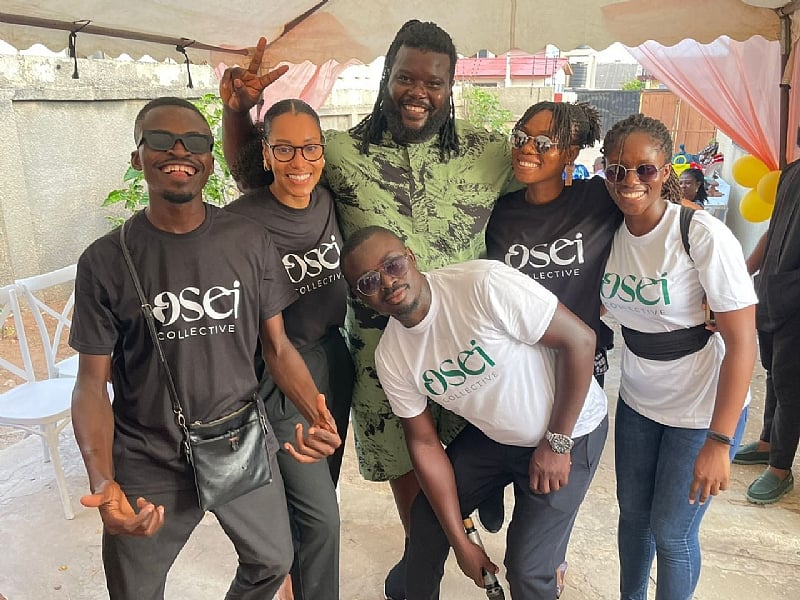Jessica Quelennec, the founder of Osei Collective, recently articulated the pressing issues faced by persons with disabilities (PWDs) in Ghana and across Africa. In an insightful interview, she emphasized that PWDs remain one of the most marginalized and underrepresented demographics on the continent, often viewed as inherently vulnerable. While opportunities may be more abundant for individuals with disabilities in Western nations, Ghana presents a starkly different reality. Quelennec noted that many PWDs resort to begging due to societal stigma and inadequate access to education and vocational training. Her comments reflect a deep understanding of the systemic barriers hindering PWDs in Ghana and underscore the urgent need for effective intervention.
Quelennec’s passion for facilitating change is rooted in a personal calling to return and invest in Africa’s potential. She firmly believes in the untapped capabilities of marginalized groups, particularly those with disabilities. Her vision for Osei Collective extends beyond the national realm as she looks to expand efforts across Africa, aiming to uplift PWDs continent-wide. Citing the workforce’s potential, Quelennec pointed out that by 2040, Africa’s workforce is projected to be one of the largest globally, with an influx of up to 2 billion people, many of whom will be PWDs. She stressed the importance of investing in the training and development of these individuals to ensure their successful integration into the future workforce—an investment that could yield significant societal benefits.
Despite the presence of laws designed to support PWDs, Quelennec lamented that enforcement remains a critical hurdle. Many employers still neglect to provide accessible environments or adopt inclusive practices. These systemic failures perpetuate both social and economic exclusion for PWDs. Adding to the dialogue, Mr. Yaw Ofori Debrah—Chairman of the National Council for Persons with Disabilities and a prominent disability activist—discussed the necessity of showcasing the diverse skill sets possessed by PWDs. He emphasized the misconception that individuals with disabilities are inherently limited and dependent, stressing instead the valuable contributions they can make to society when provided with appropriate support and opportunities.
Mr. Debrah also celebrated instances where PWDs have successfully launched their own businesses, showcasing their talents in the process. His message was clear: with adequate support from society, individuals with disabilities can excel alongside their peers, contributing effectively to various sectors. Nairo Haruna echoed this sentiment, expressing gratitude to initiatives like Osei Collective and the NADO Foundation, which work tirelessly to eliminate the stigma associated with disabilities. He articulated that exhibitions and similar events serve not only as platforms to highlight creativity and talent but also as essential avenues for redefining societal perceptions of individuals with disabilities.
The collective efforts of Jessica Quelennec, Mr. Yaw Ofori Debrah, and Nairo Haruna illuminate a growing movement focused on empowering PWDs in Ghana and beyond. By addressing stigma and enhancing both opportunities and visibility for these individuals, advocates seek to foster a more inclusive society. The overarching goal is to create an environment where PWDs are recognized not for their limitations but for their abilities, enabling them to transcend current societal barriers. Through continued advocacy and targeted initiatives, the momentum toward creating meaningful change for PWDs in Africa is building, aiming to support the realization of their full potential.
As this dialogue continues to unfold, it becomes increasingly clear that the road toward empowerment for persons with disabilities in Ghana and across Africa is a shared responsibility. Stakeholders from various sectors must collaborate to create sustainable improvements that dismantle barriers and facilitate integration. By ensuring that educational, vocational, and social opportunities are accessible, society can unlock the latent potential within PWDs, ultimately contributing to economic growth and social equity. Embracing inclusivity and diversity isn’t just an ethical imperative; it promises to enrich communities in ways that benefit everyone involved.














